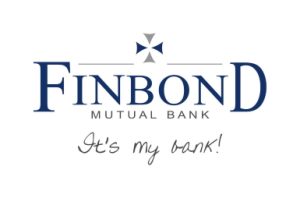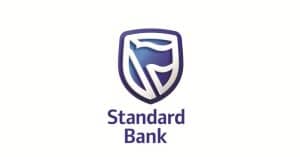The rise of Islamic finance in South Africa marks a significant shift in the financial landscape, offering opportunities for growth. With its ethical foundations and inclusive potential, Islamic finance is set to play a key role in the country’s economic development.
As South Africa positions itself as a hub for Islamic finance in Africa, understanding its core principles becomes essential for stakeholders aiming to engage in this expanding sector. This post explores these principles and examines the opportunities they present for economic growth in South Africa.
Understanding the principles of Islamic finance

Islamic finance, based on Shariah law, emphasizes ethical investment and transparency. A key principle is the prohibition of Riba (interest), requiring financial transactions to be based on tangible assets, fostering fairness and real economic growth. This approach creates a stable, secure financial environment that attracts investors.
Another core principle is risk-sharing, where profits and risks are shared between parties, ensuring equitable wealth distribution and reducing the risk of financial crises seen in conventional systems, where risk is often one-sided. Islamic finance also promotes ethical investments, avoiding activities like gambling and alcohol, appealing to socially responsible investors and increasing demand for its products.
The role of Islamic banking in South Africa
Islamic banking in South Africa has seen steady growth over the past decade, appealing to a diverse population interested in ethical and sustainable investment opportunities. This sector offers products like Shariah-compliant savings accounts, home financing, and investment funds, providing alternatives to conventional banking.
The introduction of Islamic banking has fostered economic inclusivity by integrating the unbanked Muslim population into the formal financial system, promoting greater financial equity and participation in the economy.
Additionally, the adoption of Islamic banking has spurred innovation, blending traditional banking with Shariah law requirements. This innovation meets diverse financial needs, making Islamic banking attractive not only to Muslims but also to the broader South African community.
Investment opportunities in the Islamic finance sector
The growth of Islamic finance opens up new investment opportunities in infrastructure, energy, and real estate sectors, among others. South Africa, with its need for sustainable development and infrastructure projects, finds Islamic finance an attractive source of capital that aligns with ethical and long-term growth objectives.
South Africa’s geographical and economic positioning makes it a gateway for investments, and Islamic finance can play an instrumental role by providing innovative financial mechanisms that accommodate diverse investor interests. Instruments such as Sukuk (Islamic bonds) offer an array of fundraising options for government and private sectors alike, providing a responsible avenue for investment that appeals to both local and international markets.
With governmental support, including tax incentives for Shariah-compliant products, and an increasing appetite for socially responsible investing, the potential for substantial growth in the Islamic finance sector is clear. Investors looking to diversify their portfolios in a responsible manner find Islamic finance an appealing option.
Opportunities for growth in the Islamic financial sector
As demand for Islamic financial products grows, there is significant potential for sectoral expansion, job creation, and economic development in South Africa. With a rising middle class and a youthful workforce, the prospects for Islamic financial services are promising.
Educational initiatives and partnerships between South African universities and Islamic financial institutions can bridge the knowledge gap, equipping the next generation with the skills needed to drive innovation in the sector. Collaborating with international Islamic finance hubs will help exchange best practices for sustainable growth.
Community engagement programs aimed at raising awareness of Islamic finance principles can further support growth. By promoting understanding of ethical financial practices, South Africa can fully leverage Islamic finance for inclusive economic development.
The role of technology in advancing Islamic finance
Technology plays a crucial role in advancing Islamic finance in South Africa. With the rise of fintech solutions, financial institutions can offer Shariah-compliant products more efficiently, reaching a broader audience and increasing accessibility.
Blockchain technology and smart contracts enhance transparency and trust in Islamic financial transactions, removing traditional barriers and inefficiencies. This technological integration is vital for developing dynamic and responsive Islamic financial services.
By embracing technology, South Africa can position itself as a leader in Islamic finance innovation, attracting global partnerships and investments. Leveraging these advancements ensures that Islamic finance continues to evolve and meet the demands of a changing market.
Strategies for fostering collaboration and partnerships
Fostering collaboration and partnerships between Islamic financial institutions and conventional banks can catalyze growth in the sector. By working together, institutions can offer a more comprehensive range of services, benefiting from each other’s strengths while expanding their client base.
Government policies that support the development of Islamic finance can further incentivize partnerships, creating a robust framework for both national and international collaborations. Engaging with multinational corporations and investors in shared projects also presents opportunities to attract global capital and expertise to South Africa.
Strategic alliances between South Africa and Islamic finance hubs in the Middle East and Southeast Asia can enhance learning opportunities and drive markets. By reinforcing these partnerships, South Africa can bolster its position as a leader in Islamic finance, leveraging its diverse economy and strategic location.



